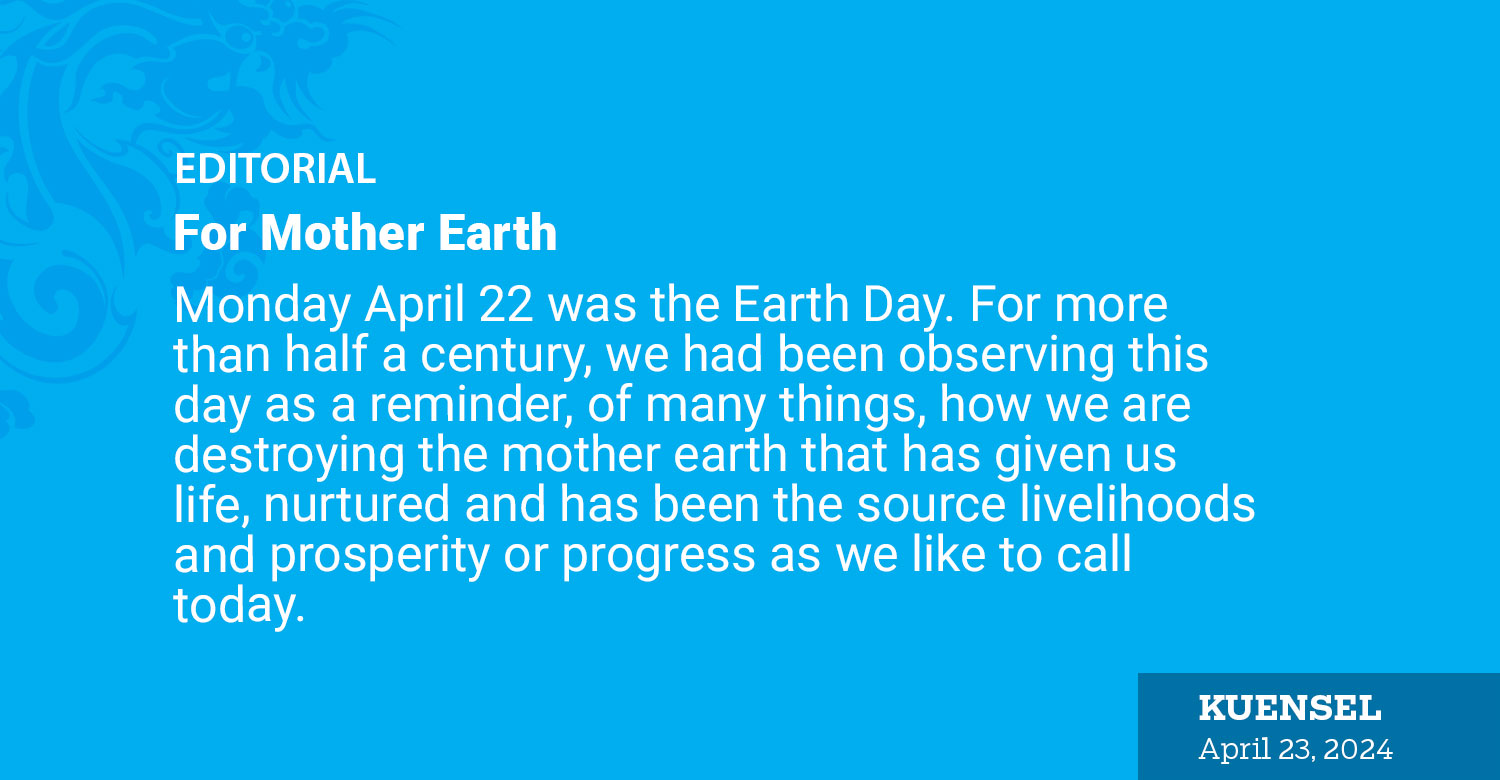Monday April 22 was the Earth Day. For more than half a century, we had been observing this day as a reminder, of many things, how we are destroying the mother earth that has given us life, nurtured and has been the source livelihoods and prosperity or progress as we like to call today.
There were no celebrations or events to mark the Earth Day yesterday. But it is an opportune time to pause and reflect on the significance of the day. The earth is changing. Humanity is robbing, if not already raped, the earth of all its giving. We have reached a point where we should be reflecting on how to reverse the course.
In Bhutan, we take solace in our conservation and environment- first approach to growth. But the impact of robbing the earth spares no country or community. Even as we reflect on the day, there are reports on how the year gone by was one of the worst years in our history. The records are scary. 2023 was a disastrous year. The world witnessed the hottest year, the worst droughts with some of the biggest rivers drying to the bed, worst floods and everything that is related to the wrath of nature.
The wars and conflicts has environmental impact that is not getting the attention even if the impact is global and long lasting. We can only guess the amount of pollution caused by heavy bombardments just from the Russia-Ukriane conflict. There is conflicts everywhere today, unfortunately.
The irony on the Earth Day is that the world leaders are aware of the consequences. Worst, global leaders are not being able to put in action after the grand rhetoric at global conferences on climate change or global warming.
In Bhutan, we take pride in our conservation efforts. We know that our environment is in a good state. We are known for our pristine environment, a global hotspot. We have rich forest cover, low pollution, abundant wildlife, clean air, and generally healthy living space.
In Paro, there is an international conference on protecting tigers. The elusive and endangered big cat has found a sanctuary in Bhutan. We have provided the space for them to thrive, even if at the cost of farmers. It is a feather in our conservation cap. But Bhutan alone cannot save a beautiful and rare species like the Bengal tigers, threatened largely by humans.
Priorities change every day. With pressure on human development, the environment and wildlife could be pushed to the backstage. It could happen to us too. Let us be honest, the achievement so far in our conservation efforts is the fruit of wise leadership that has given importance to environment since the development process began.
The pressure on the environment is increasingly felt as we “progress”. There is pressure on land, air, rivers and life itself. And our policies are conflicting or not sensitive to the environment.
We talk of vehicular pollution, but cannot control the number of vehicles. The pressure from urbanisation has turned rice fields into concrete jungles while buildings are quickly replacing prayer flags on the hillsides. Waste has become a mounting problem as we are driven by consumerism. We may take pride in clean energy generated from rivers, but we import more fossil fuel worth more than our clean energy export.
However, all is not lost. Small we may be, but our leadership in caring for the earth will go a long way. The ongoing international tiger conference is a good example of hope.


